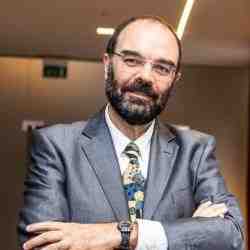Wprowadzenie
Aisha has designed and successfully implemented the longest-running guaranteed income initiative in the United States at a moment when demand for newer, better approaches to economic and racial inequities is peaking. Her courageous experiment has sparked a national movement and is unlocking both private and public dollars.
Nowy pomysł
Too many Americans, particularly Black Americans, remain locked into the bonds of intergenerational poverty. Aisha has improved and implemented an idea that has never managed to take root in the United States: invest directly in the most vulnerable Americans with cash assistance as a temporary lifeline, a runway to financial freedom, and ultimately a more choice-filled life. Via the Magnolia Mother’s Trust, Aisha and her team piloted a modern guaranteed income initiative in Jackson, Mississippi that is the country’s longest-running effort and the first to focus on this community. She is now actively spearheading similar approaches across the country via the Guaranteed Income Community of Practice (GICP) which she co-founded as a resource for thought leadership and dissemination. Her work represents a fundamentally different alternative to existing welfare programs, and challenges some of our most harmful narratives about the causes of poverty – all underpinned by compelling data about its effectiveness both in the short and long term.
While the idea of giving people cash is not itself new (in fact, such programs have been running effectively in other parts of the world for decades), Aisha’s approach folds in a number of new elements that are central to its success and spread in the U.S. First and foremost, beginning in 2018, she co-designed the program with extremely low-income Black mothers so that the program elements, length, and emphasis were championed by the participants, and those with the most at stake. This “radically resident-driven” process is why trust funds for children were incorporated from day one, for example, and why the end-date of the $1,000 per month cash was 12 months (as opposed to the original 24 – mothers were adamant that one year was more than sufficient to give them the breathing room they needed to get their heads above water). The decision to focus on the most vulnerable segment of society is also new and deliberate: if a modest, one-year investment in Black mothers living 200% below the poverty index can prompt radical, measurable improvements for their lives and family, imagine what else we could do? Aisha’s courageous example has created the conditions for others to invest in an idea that has never had the political will to become a reality.
Also new is Aisha’s effort to take the idea from a peripheral experiment into the mainstream – via a combination of both rigorous data and narrative shifts. She is at the forefront of a national movement in city, state, and federal policy for cash without restrictions that has seen significant momentum in the past couple of years. Before Aisha’s pilot, virtually no private or public dollars were being invested in guaranteed income. But after convincing a courageous few funders to try, Aisha has proven the efficacy of her model and unlocked private resources – which has then led to public investments in GI pilots across the country. She and her team have created a blueprint for both the technical aspects and the policy savvy; more than 140 guaranteed income projects have launched in just the last 3-4 years.
Aisha’s experiment reveals the many benefits that come from investing directly in our most vulnerable. Rigorous studies conducted on the first three cohorts of mothers with the Magnolia Mother’s Trust (MMT) showed that the program had a lasting positive impact on parenting efficacy, parent-child relationships, and children's mental health. Even after the program ended, mothers continued to report changes in their lives that were seeded or launched during MMT, such as pursuing educational opportunities or making changes to their career. Aisha’s vision is of a reformed welfare system built on trust, affirming of the equal humanity and dignity of all people, and as she prepares to launch the sixth and largest cohort of mothers in Mississippi, the work is undergoing a period of rapid expansion as both an initiative and a national movement.
Problem
The social safety net in the U.S. is built on discriminatory and outdated narratives about families and the poor. It’s assumed, for example, that children will be born into two-parent, two-income households where their material needs can be met. Frameworks for support fail to consider the that the majority of people do not fit into a “traditional” nuclear family mold; such as single parents, children born into poverty, and people living in economically depressed areas. Where assistance programs do exist, they are often punitive, distrusting, and restrictive. Meanwhile, too many Americans, particularly Black Americans, struggle to get free of intergenerational poverty, the roots of which hark back to slavery and countless policies that to this day block Black families from the same wealth building opportunities as their white counterparts.
Despite ostensible progress made since the civil rights movement, the racial wealth gap has gone virtually unchanged since 1950 (in fact, the gap has been widening since the 80s). Income inequalities and punitive policies regarding our social safety net have allowed Black women to become the most vulnerable demographic. For every dollar that a White man is paid, Black women are paid only 62 cents. The poverty rate for Black women is more than twice that of White women, even though Black women have higher labor force participation.
Moreover, our social safety net treats poverty as temporary and personal, not deeply entrenched, multi-generational, or a natural consequence of structural racism. Harmful narratives that have been cultivated over centuries view Black Americans, especially Black women, with suspicion. At a fundamental level, we don’t trust people who are experiencing poverty and think they need to be protected from themselves. This distrust is a key reason why, despite robust research proving its efficacy and successful examples abroad, sustained guaranteed income programs haven’t been implemented in the US until now. The concept was first introduced in the U.S. in the 1960s by civil rights advocates (including Martin Luther King Jr.), economists (including Milton Friedman), and other political actors. While universal income provides everyone a set stipend monthly or annually, a guaranteed income provides targeted cash transfers to the most vulnerable -- individuals or families most affected by income inequality -- with the goal of creating an “income floor through which no one can fall.” The concept was put to the test in a number of large-scale experiments that took place between the late 60s and the mid-late 70s. Despite findings showing such programs supported low-income families without disincentivizing work, these experiments never got broad traction in the U.S. (unlike other countries, such as Brazil where their Programa Bolsa Família (PBF), a conditional cash transfer model that was launched in 2003, has successfully reduced levels of inequality and hunger).
Quite the opposite: Beginning in the 1990s, sweeping changes to welfare tightened access to federal assistance – driven by unfounded concerns about “welfare queens” abusing public programs – by (among other things) mandating work requirements. The so-called reforms created a class of extremely poor people, referred to as “the disconnected,” who were neither working nor receiving help from the government (including help to find work). Additionally, new welfare laws gave individual states power over benefits administration. Mississippi, where Aisha lives and works, has some of the highest poverty rates in the U.S. at 19.6% and nearly 50% of all children are being raised in mother-headed households. Despite 75% of single mothers in MS participating in the labor force, evidence suggests that working conditions often fail to foster economic mobility. Since 1996, the state has tightened eligibility requirements, increased the complexity of receiving benefits, and now ranks among the least accessible assistance in the nation. Despite the fact that 64% of Black children in Mississippi are living in poverty, only 2% of eligible families receive Temporary Assistance for Needy Family (TANF) benefits. A reduction in TANF access is associated with higher food insecurity, increased child homelessness, a jump in foster-care placement, and more juvenile detention. The chronic stressors for low-income mothers are such that women spend their days operating in survival mode – working three jobs to make ends meet and yet still unable to afford an oil change or a notebook for their 5th grader. Living in poverty denies people the ability to dream – to think about what they want for themselves and their family.
In recent decades, there has been growing acknowledgement that our solutions simply aren’t working, as well as bipartisan support in the US around the idea that people should have enough money to cover their basic needs, but the headwind of opposition is strong and the fear of giving away “free money” deeply fixed. In a nation founded on independence, with an outsized fear of “dependence” and pejorative attitudes towards poverty – there has not been enough political will to champion a radical revision of how we address economic inequity.
Strategia
In 2013, Aisha co-founded Springboard To Opportunities, a non-profit that supports families living in federally subsidized affordable housing – whose income is typically 200% below the poverty index. Springboard takes a unique “radically resident driven” approach to supporting residents, which means working alongside families in all aspects of program design and evaluation. The fact that Springboard provides resident identified services – many of which happen on-site – sets them apart from the vast majority of affordable housing service providers, which function as “linkages” to external services in crisis situations. Instead, Springboard provides wrap-around supports for families where they live, including after school programs, workforce development, health care clinics, etc. Springboard serves over 5,000 residents annually, mostly Black moms and their children. They also became the first resident service provider in privately developed Section 8 housing in the U.S. to launch a HUD Family Self-Sufficiency (FSS) program, which aims to help families increase their earnings and build financial capability.
Despite the marked benefits of their programs on health outcomes, school attendance, and employment, by 2017 Aisha and her team were troubled by the fact that most families still weren’t able to achieve their goal of matriculating out of affordable housing. The team conducted interviews with residents to figure out what was going on, and the common denominator of nearly every conversation about economic and emotional stress was a lack of cash. Not only did residents not have enough money to cover an emergency $300 car repair, they weren’t able to pay for the basics, like school supplies, diapers, or formula. They didn’t need another program, they needed cash.
At the time, virtually zero private or public dollars were supporting guaranteed income programs, but Aisha decided to figure out how to pull it off. She organized a group of moms living in affordable housing to meet every month for six months and design a model that would work for them. Meanwhile, Aisha set out to try and secure private dollars for the experiment. Her pitch – give poor people cash, no strings attached – was initially met with resistance or dismissal, but she persisted. In 2018, Aisha launched the Magnolia Mother’s Trust as a pilot to provide 20 extremely low-income Black mothers living in affordable housing with $1,000 of unrestricted cash per month for one year to supplement their existing incomes (which were on average less than $12,000 annually). The participants were selected through a lottery system. The group of women decided every aspect of the program, from the monthly amount to the length. At the core of Aisha’s work is the idea that people need to be the arbiters of their own lives.
The choice of Black mothers living far below the poverty line is a deliberate one, and part of Aisha’s entrepreneurial strategy. When you support the most vulnerable, everyone does better. And if you can make it work with the most vulnerable, it is more likely to work elsewhere. The targeted approach also enabled Aisha and her team to take into account the unique circumstances of the participants' lives.
Aisha's end game is to help usher in federal policy that weaves a new social safety net, but given the persistent barriers that have kept such a policy from being implemented she sought support from private philanthropy to launch the bold experiment and demonstrate its benefits. Aisha launched this effort with several systems change goals in mind: (1) to show what would happen if financial resources were provided to low-income mothers on their own terms, designed by them, (2) to seed and spread the approach elsewhere, and (3) to change the narrative about persistent poverty in America. When she started MMT, it had been 50 years since anyone had tried to start a robust GI pilot in the U.S. So while the concept itself isn’t new, Aisha’s approach to GI includes a number of new components that are crucial to the models success and rapid spread.
For example, the design process with women recipients themselves, which itself led to a new component: a multi-generational approach to building wealth by starting bank accounts for the recipients’ children at the very beginning of the program. In addition, the pilot and subsequent initiatives include peer support and community building to help combat the isolating experience of poverty. By teaching these women about the structures that keep poor people poor, they begin to understand that they themselves are not “the problem.”
But how can Aisha make such efforts more than peripheral experiments? First is to prove that they work -- and that the benefits are sustained. As the longest running GI program in the U.S., Magnolia Mother’s Trust is uniquely positioned to enhance the evidence for GI programs by documenting the longer-term impacts and lifting up the voices of participants' children. From the very beginning, a key part of Aisha’s strategy has been to engage evaluation partners every step of the way. This has enabled swifter replication, increased funding, and elevated the experiment to a national movement and policy conversation.
Some of the notable data-informed outcomes Aisha has tracked, in collaboration with research partners like Social Insights:
- the ability of mothers to pay all their bills on time increased from 27 percent to 83 percent
- the percentage of mothers who had had emergency savings increased from 40 percent to 88 percent
- the percentage of mothers reporting they had enough money for food increased from 64 percent to 81 percent
Participants reported that for the first time they felt like good moms because they were able to take care of some of their kids wants, not just always focusing on their needs. Some moved into home ownership, others got married. According to Aisha, “cash gave them some room to breathe – and once they didn’t have to focus solely on surviving, they could consider the radical possibilities of thriving, asking what it is they want for themselves and their family.” Studies of MMT Alumni show that the benefits of participation extend (and persist) when the cash payments and programming stops (bank accounts for women and their children, new mental models, fewer chronic stressors, a sense of hope and possibility, a runway that allows them to pursue dreams for their future, such as going back to school). In this way, the approach represents a minor investment with lasting implications.
The second part of mainstreaming GI is to enable its spread. To that end, in 2020 Aisha co-founded the Guaranteed Income Community of Practice (GICP) with the Economic Security Project to spread the model to communities across the country. GICP has become the leading national convener of policy experts, advocates, researchers, leaders, funders, universities, and practitioners to learn and collaborate in the maturing arena of unconditional cash programs.
The pandemic presented an opportunity, which like any good entrepreneur, Aisha seized. Because of the destabilizing effects of the public health emergency, and the hundreds of millions of Americans receiving direct cash payments from the government, the cultural and political moment was ripe to build lasting support for this approach. GICP was in fact directly involved in inclusion of the Child Tax Credit as part of the American Recovery Plan – where for the first time it was extended to people without an income.
For more than a year, Aisha and her team participated in the Child Tax Credit Lab on implementation and outreach with two dozen grassroots groups from around the country. They were trying to ensure that the benefits reached the most vulnerable communities – a particular challenge given the founded level of fear and suspicion surrounding so-called handouts from the IRS. Aisha’s extensive knowledge of how communities work allowed her to use her expertise to provide direct recommendations on how the government should conduct messaging and outreach to maximize participation. In six short months the CTC cut childhood poverty in half, and while it unfortunately wasn’t extended, it provided powerful evidence for the potential of cash to provide a “bottom” for the most impoverished. Aisha seized on this moment of openness to double-down on her efforts to support local pilots and policies.
GICP’s goal is to triple the number of states with a guaranteed-income-like policy – this often takes the shape of building something like the child tax credit or earned income credit into their tax code. In 2022, GICP celebrated the launch of 100 GBI pilots in the U.S., many of which have roots in Aisha’s initial Mississippi experiment, and many of whom Aisha consulted directly with – from Chicago to Atlanta to Washington, DC. Today, there are over 140 pilots across most states. Nearly half of them are run by non-profits that are using Aisha’s playbook. The non-profit led pilots are proving to be consistent and sustained because their champions tend to become integrated into the fabric of the community.
Aisha has fully embraced this additional role of field builder – advancing the conversation, rooted in data and fueled by our unique political moment. In 2023, she testified on Capitol Hill, sharing the story of the Magnolia Mother’s Trust and calling for a social safety net that finally ends poverty by offering direct cash without restrictions as a starting point. This national visibility normalizes guaranteed income over time, but also unlocks both public and private dollars to continue to feed programs at the state and municipal level so that in a decade, guaranteed income will simply be an effective, and widely accepted tool in the economic development toolbox of the nation.
Osoba
Aisha is a lifelong Mississippian and a third generation descendent of a family dedicated to advocating for those whose voices have been silenced and dismantling systems of oppression. Her grandmother, Dr. L.C. Dorsey, was a key player in the civil rights movement who is known for her efforts to combat poverty, reform the prison system, and for helping to develop the national health center model.
Growing up, their dining table was more like a round table; each sitting was a forum where minds met to discuss social issues. Although the problems and challenges faced by the community were discussed in detail, the conversation did not end there. The ultimate goal was to develop solutions. From a young age, Aisha knew she wanted to work in and alongside community., After moving away from home to go to college and eventually get her doctorate in ecological community psychology, Aisha moved back home, to Jackson, where she turned her attention to increasing economic mobility for her community. In 2013, Aisha pioneered a new model for affordable housing supports that was “radically resident driven” and integrated services, programs, and pathways to opportunities where people lived.
After testing, refining, and scaling the resident service model to other states, Aisha was confronted with the limitations of holistic services when residents didn’t have enough cash to afford a new notebook, let alone a medical emergency. When they came to her with this feedback, she figured out a way to make it happen.
Grandma Dorsey inspired the name of Magnolia Mother’s Trust. Magnolias were her favorite tree and when she moved her family from the Delta to Jackson, Mississippi, she planted one in her front yard. The word “trust” stands for both the financial instrument and believing in others.
The Magnolia Mother’s Trust – and Aisha’s work more broadly – is changing the dominant narrative about poverty and power, challenging long-standing prejudices about who deserves to make it in America and confronting gendered and racialized narratives about why people don’t. That’s why, in addition to her work in Mississippi, Aisha has become a national leader in the fight for policies ranging from a federal guaranteed income to an expanded Child Tax Credit. Her expertise on economic, racial, and gender justice issues has been featured in outlets including The New York Times, the Washington Post, NPR, Essence Magazine, NBC Nightly News and CNN.




